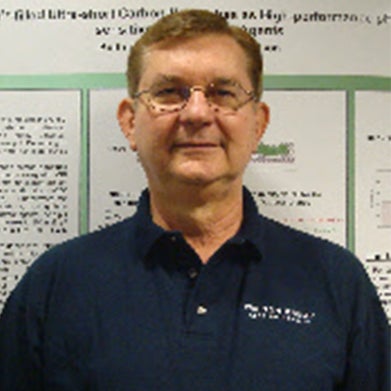Research Summary
Professor Wilson's research program involves bringing carbon nanotechnology to the fields of biology and medicine. The nanoparticle "building blocks" of this program are fullerenes (C60), endohedral metallofullerenes (M@C60), and ultra-short (20 nm long) single-walled carbon nanotube capsules (US-tubes). Externally, these carbon nanostructures are being chemically derivatized to make them biocompatible and cell-specific through peptide and antibody targeting. Internally, the nanostructures are being loaded with materials of medical interest for diagnostic and therapeutic medicine. Materials of interest include Fe2O3 and Gd3+ ions for magnetic resonance imaging (MRI), I2 molecules for X-ray computed tomography (CT) imaging and alpha-particle radionuclides (Ac3+-225 and At-211) for alpha-radioimmunotherapy of single-cell cancers. Cancer therapies are also being developed that take advantage of superparamagnetic nanostructures, such as Gd3+@US-tubes, that are simultaneously diagnostic (MRI-guided) and therapeutic (magnetic hyperthermia) agents in a single package. All these carbon nanostructures, with their medical cargos, are designed to be among the first intracellular agents, since the future of medicine will involve the early detection of disease at the cellular level when it is most treatable. Nanoengineered materials promise great advances in medicine, and, working with colleagues at various medical centers, our goal is to bring key, high-performance materials to the clinic as soon as possible.
Biography
From his roots in the fundamental coordination chemistry of transition metal complexes, Dr. Lon Wilson’s scientific pursuits have extended significantly over the past forty years to include biological applications of inorganic and organic materials, particularly carbon nanomaterials. In collaboration with several institutions in the Texas Medical Center, Dr. Wilson has pushed the boundaries of traditional chemistry into clinical applications, including cancer therapy through radiofrequency-induced hyperthermia and novel chemotherapeutic agents, diagnostic imaging and multimodal techniques, and stem cell-mediated heart repair. While he has taught many different classes during his more than forty years at Rice, Dr. Wilson currently instructs the transition metals course (CHEM 495) as well as laboratory modules in advanced inorganic chemistry (CHEM 366).

